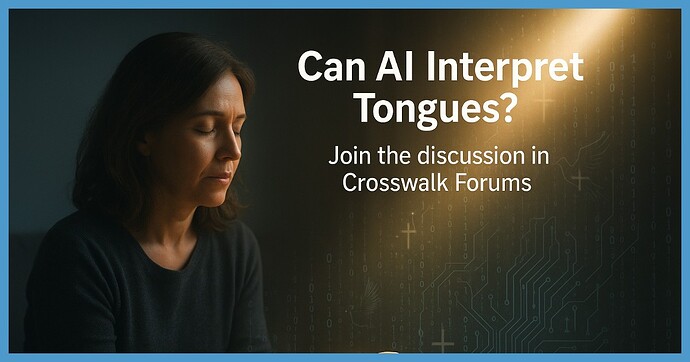No problemos brother @KPuff
The Context of the Letter: Corinth’s Carnal Church
Paul is addressing a church drowning in compromise. Corinth was morally rotten—a port city filled with sexual promiscuity, temple prostitution (especially at the temple of Aphrodite), philosophical pride, and lawsuits. The believers had been saved from darkness (cf. 1 Cor 6:9–11), but many had carried the world’s slogans, ethics, and logic into the church.
Paul is writing not just to correct doctrine, but to confront a crisis of spiritual identity. The Corinthian believers were abusing Christian liberty, twisting grace into a license for fleshly indulgence. Their logic? “We’re not under law… therefore everything is allowed!”
- The Immediate Argument (1 Cor 6:12–20): The Body and Sexual Morality
Paul is zeroing in on sexual immorality, and he’s quoting their slogans in order to expose their false reasoning. The phrase “All things are lawful for me” (Πάντα μοι ἔξεστιν) appears twice—this is likely a Corinthian catchphrase, not Paul’s own claim. The Corinthians had taken the doctrine of freedom in Christ and weaponized it to justify sin, especially sexual sin (cf. 1 Cor 5:1–2).
So Paul confronts their slogan, not by denying Christian liberty, but by drawing two essential lines:
- The Structure of Paul’s Response in v.12
“All things are lawful for me” – their slogan (twisted liberty).
“…but not all things are helpful” – Paul responds with divine wisdom (beneficial?).
“All things are lawful for me” – they repeat the claim.
“…but I will not be brought under the power of any” – Paul adds a warning about enslavement.
Greek verbs:
ἔξεστιν (exestin) – “is lawful, is permitted.” It’s a verb of permission, not of benefit.
συμφέρει (sympherei) – “is beneficial, profitable, helpful.” Paul appeals to edification, not mere allowance.
ἐξουσιασθήσομαι (exousiasthēsomai) – “I will not be mastered/controlled by.” This is future passive—Paul is saying he will not allow himself to come under the authority or domination of anything, even something technically “lawful.”
So while Corinth says “freedom!”, Paul replies, “Not everything that’s legal builds up—and I refuse to be enslaved by what grace has freed me from.”
- The Deeper Theology: Grace Does Not Excuse Bondage
Paul is drawing a line between lawful and edifying, between permissible and enslaving. Just because something isn’t explicitly forbidden doesn’t mean it’s spiritually safe. He’s not preaching legalism—he’s preaching holiness fueled by grace. The gospel doesn’t just free us from law, it frees us from sin’s dominion (cf. Romans 6:14).
And notice—Paul links spiritual authority with bodily control. In verses 13–20, he takes the conversation into the realm of the body, reminding them:
The body is not for sexual immorality, but for the Lord (v.13)
Your bodies are members of Christ (v.15)
You are not your own—you were bought with a price (v.19–20)
The cross of Christ isn’t just for your soul—it claims your body, your desires, your liberties. The Spirit now indwells the believer’s body as a ναὸς (naos), a holy sanctuary. So casual sexual sin—or any addiction cloaked in liberty—is not just poor judgment, it’s spiritual treason.
- Application for the Church Today
We must ask: Does our view of Christian liberty fuel sanctification, or excuse sin?
Do we claim “freedom” to justify entertainment, habits, substances, or relationships that enslave us spiritually?
Paul’s standard is clear:
If it doesn’t build up, it’s not worthy of your body. If it takes control, it’s not worthy of your freedom.
Freedom in Christ is not the right to sin without consequence—it’s the power to walk in holiness without condemnation.
Summary:
1 Corinthians 6:12 is Paul smashing the Corinthian slogan of sloppy grace.
He uses their own words, flips them on their head, and draws a line between freedom that edifies and liberty that enslaves.
He warns that not everything “lawful” is spiritually wise—and nothing should rule over the believer except Christ.
The cross didn’t just purchase your soul—it bought your body, and that body is now a temple of the Holy Spirit.
So let no “freedom” dethrone your King or defile His temple.
“All things are lawful” is not the voice of the Spirit.
But “All things are helpful for building up the body of Christ”—that’s where liberty lives.
J.

